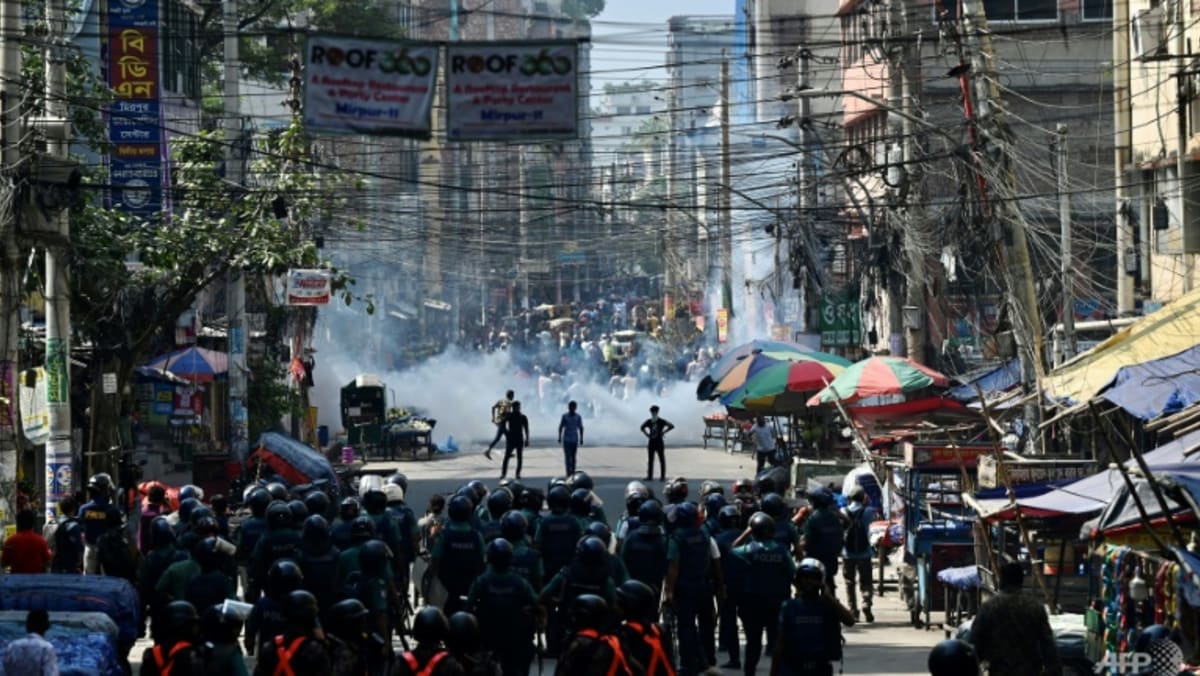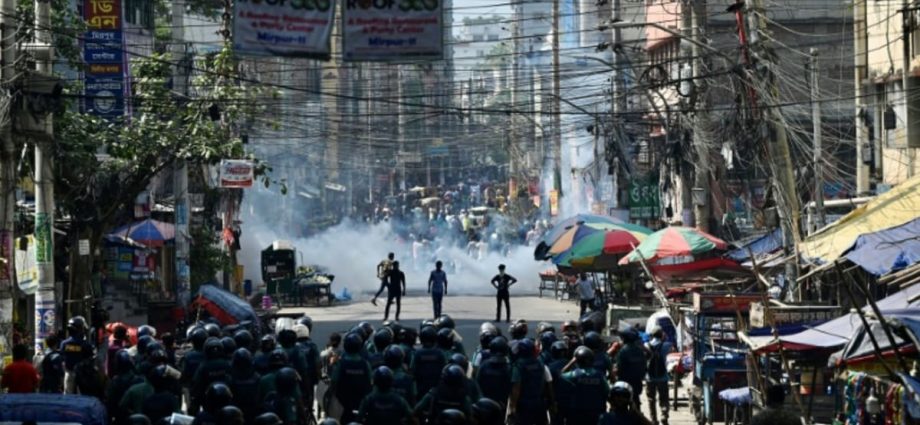
DHAKA: Hundreds of garment factories in Bangladesh have shuttered as thousands of workers staged violent protests to demand a near-tripling of their wages, police said on Thursday (Nov 2).
Bangladesh’s 3,500 garment factories account for around 85 per cent of the South Asian country’s US$55 billion in annual exports, supplying major Western brands including Adidas, Gap, H&M and Levi Strauss.
But conditions are dire for many of the sector’s four million workers, the vast majority of whom are women whose monthly wages start at 8,300 taka (US$75).
Police said on Thursday that workers had ransacked dozens of factories across Gazipur and other industrial neighbourhoods on the outskirts of the capital Dhaka since the protests began over the weekend.
“More than 250 garment factories have been shut in the protests. Up to 50 factories have been ransacked and vandalised, including four or five which were set alight,” Gazipur police chief Sarwar Alam told AFP.
“When one factory is ransacked, neighbours don’t want to keep their factories open,” he added.
Further afield, Ashulia deputy police chief Mahmud Naser told AFP that at least 50 “very big factories” employing more than 15,000 workers in his industrial town had been shuttered.
Two workers have been killed and dozens more injured since protests began, according to police figures.
The Bangladesh Garment Manufacturers and Exporters Association (BGMEA), which represents factory owners, has offered a 25 per cent pay raise.
The pledge is significantly short of the 23,000 taka (US$209) monthly wage that the protest campaign has called for.
Police officials told AFP that several thousand workers had blocked roads around Dhaka to press their demands.
Officers in Gazipur “fired tear gas and sound grenades at nearly 1,000” workers who blocked a road and staged protests, senior police officer Abu Siddique told AFP.
“They were dispersed and left the place peacefully,” he added.
Protests continued for a third day in Dhaka’s western district of Mirpur, where police in riot gear fired rubber bullets, tear gas and sound grenades at nearly 5,000 workers blockading a road, an AFP correspondent at the scene witnessed.

